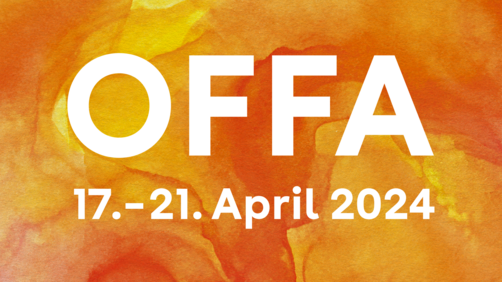Events - 02.12.2015 - 00:00
The little things in life
On Saturday, 5 December 2015, artists, entrepreneurs, researchers, cartoonists and students will gather for an innovation conference at the HSG. The so-called TEDx talk at the University of St.Gallen will focus on “the little things in life which have a great impact”.

30 November 2015. The Western Swiss student Manal Belaouane initiated the event with a team of 30 HSG students. Only a hundred spectators will be able to follow it live. However, the TEDxHSG team will transmit the conference to another HSG lecture hall and feed it live into the net. Media representatives and the general public are cordially welcome.
TEDxHSG is an independently organised non-profit organisation and brings inspiring people from all over Switzerland to St.Gallen. TED is about spreading good ideas and linking people up with each other in order “to make the world a little bit better”. Regardless of whether they are interested in how the universe came into being or how to bake bread artistically – the video series will record ideas about almost any issue on YouTube. TED stands for technology, entertainment and design.
Eleven short presentations about big moments
On Saturday, 5 December 2015 from 9 a.m. to 3 p.m., 100 people will provide the audience for eleven short presentations and performances at the TEDxHSG in the Audimax of the University of St.Gallen. The topic of the day: “The little things in life”. On the stage, thirteen people will relate what small things in life moved them to do great things. The talk will be launched by St.Gallen’s twin artists Frank and Patrik Riklin. The speakers include Katrine Kjaer, Philippe Becquelin, Simon Pfister, Heike Bruch, Jonas Canton, Thomas Zweifel, Giordano Rush, Franz Rutz, Lucy Koechlin, Pierre-Alain Masson and Louis Derungs. They will have between three and 18 minutes to present their ideas personally and appealingly – according to the motto “ideas worth spreading”.
The architect Richard Saul Wurman founded TED in California’s Monterey more than 30 years ago. At that time, TED was still some sort of “secret society” of people who met for a conference once a year. The first speech was made by Nicholas Negroponte, the founder of the One Laptop per Child initiative. He spoke about storage media, touch screens and the internet. Later on, all TED talks were recorded, and for the last ten years, the organisation has presented a new talk on its website every Monday.
The “licence to inspire”
Since 2009 offshoots – so-called TEDx events – have also taken place. The letter x indicates that the event is organised by an independent person, who requires a licence issued by TED for the purpose. Manal Belaouane received it in August 2015. 100 people will be allowed to experience the “little things in life” in the Audimax. “Limiting the talks to a small live audience is a fixed rule of TED’s,” she says. She would have liked to fill the Audimax to capacity. However, for people who are interested but are not admitted to the live event, the TEDxHSG team will transmit the event into another lecture hall and live into the internet. Further conferences will require further licences. “I would like TEDxHSG to take place at the University of St.Gallen every year, though,” says the funder. For this reason, Manal Belaouane will establish an association at the HSG which will continue the event.
Digital encyclopaedia of the present day
Numerous volunteers have translated the TED talks into their languages. This has resulted in a constantly growing digital encyclopaedia of the present day, which is available free of charge to everyone the world over. The strings behind the TED organisation are pulled by the British entrepreneur Chris Anderson. The big annual TED conference usually takes place in North America, lasts five days and is a must go to for people like Jeff Bezos, the founder of Amazon, or the entrepreneur and Nobel Peace Prize winner Al Gore. In March 2015, the TED venue was Vancouver in Canada.
“TEDx talks are like gatherings round a camp fire”
More and more local organisations are staging conferences themselves. The Berlin media specialist Stephan Balzer has propagated TED in Europe. In 2009, he organised the first interdisciplinary conference in Berlin. Balzer describes the reason why TED inspires younger people, in particular, as “TED is something like a camp fire where you meet up with friends and tell each other the best stories.”
More articles from the same category
Discover our special topics











